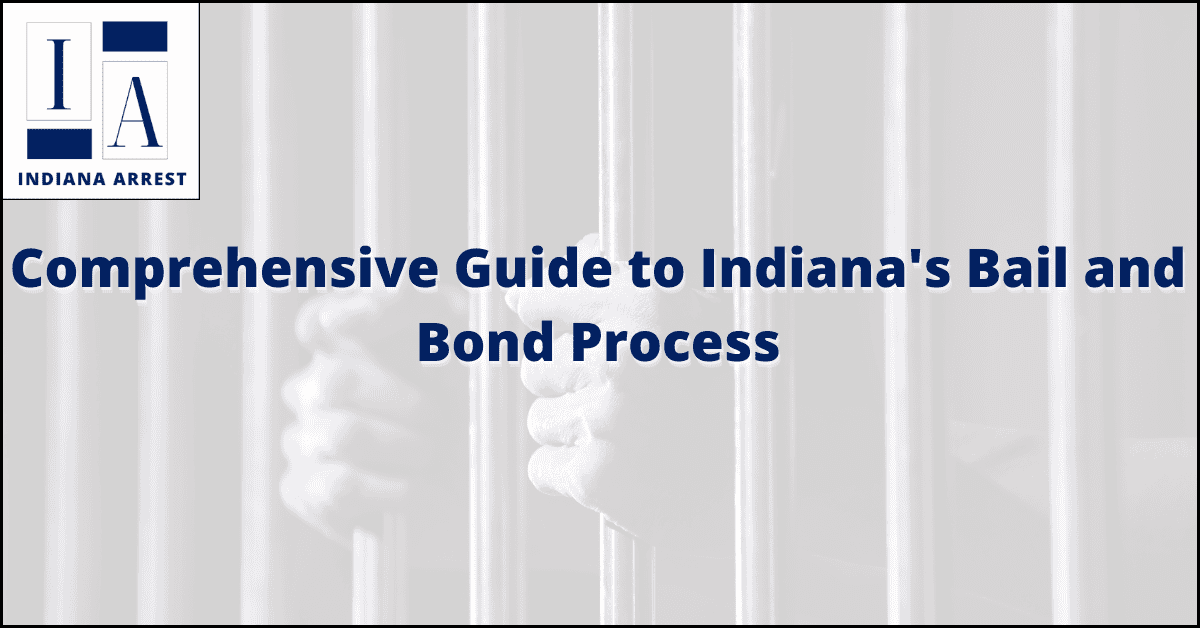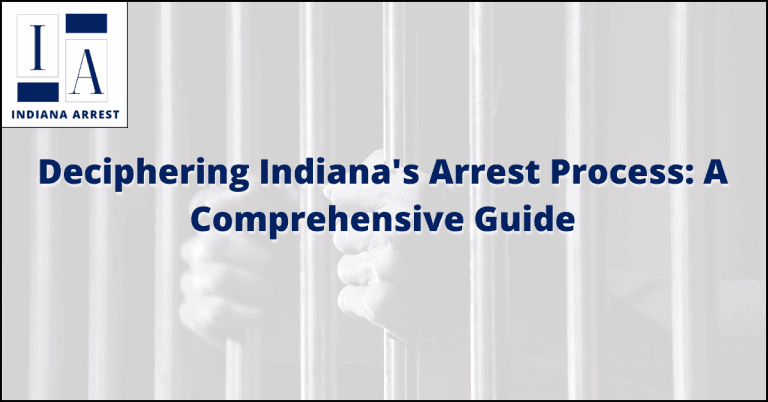Comprehensive Guide to Indiana’s Bail and Bond Process
When individuals face arrest in Indiana, navigating the bail and bond process becomes a crucial endeavor. Effectively understanding this system can significantly impact an individual’s temporary release from custody while they await trial. In this comprehensive article, we delve into the intricate details of Indiana’s bail and bond procedures, shedding light on key aspects that individuals and their families need to comprehend.
In the journey through the legal system after an arrest, the bail and bond process can be intricate, especially in Indiana. Securing temporary freedom through bail or bond involves several stages and considerations. This article aims to simplify these processes, empowering arrestees and their loved ones with knowledge about available options and the steps to follow.
Understanding Bail and Bond Types
Securing temporary freedom after an arrest in Indiana is a critical concern, and understanding the choice between bail and bond is paramount. Let’s explore the different types of bail and bond options available within Indiana’s legal framework.
Cash Bail
Cash bail is a common approach where individuals or their families pay a designated sum of money to the court as collateral for release. The amount is determined by the court and aims to ensure the defendant’s appearance during trial. While cash bail provides a direct route to securing release, it might strain finances. Additionally, if the defendant appears in court as required, the bail amount is typically refunded.
Surety Bonds
Surety bonds involve a third party, often a bail bond agent, who posts the bail on behalf of the defendant. The defendant or their family pays a fee, usually a percentage of the bail amount, to the agent. This option is favorable for those who cannot afford the full bail amount upfront. However, the fee paid to the bail bond agent is non-refundable, even if the defendant fulfills all legal obligations.
Property Bonds
Property bonds allow defendants to use their real estate as collateral for release. The court assesses the property’s value, and if it meets the set criteria, it can be used as a guarantee. While this option provides an alternative to cash payment, it carries the risk of losing the property if the defendant fails to appear in court.
Release on Recognizance (ROR)
Release on recognizance, or ROR, is a situation where the court releases the defendant based on their promise to appear in court. ROR is often granted for minor offenses and cases where the defendant poses minimal flight risk. This option does not involve monetary commitments but relies on the defendant’s integrity to fulfill their legal obligations.
FAQS
How can I clear my Indiana arrest record?
To clear your Indiana arrest record, you can pursue expungement or sealing of your criminal records through legal pathways provided by Indiana law. Expungement allows for the erasure of certain criminal records from public view, while sealing restricts access to them. The eligibility criteria and process may vary depending on the type of offense and individual circumstances. Consulting with a qualified attorney specializing in criminal law can help determine the best approach for your situation.
Can I Get My Bail Money Back?
Yes, under certain conditions, you may be eligible to get your bail money back. This often depends on whether you adhered to court appearances and fulfilled all legal obligations.
Are Bail Bond Fees Refundable?
Bail bond fees, paid to bail bond agents for their services, are generally non-refundable. They cover the agent’s work and responsibilities throughout the legal process.
Can I Change My Bail Type After it’s Set?
In some cases, it might be possible to request a change in bail type. However, this decision is at the court’s discretion and typically requires valid reasons backed by legal counsel.
What is the difference between expungement and sealing of criminal records in Indiana?
Expungement and sealing are legal processes in Indiana aimed at restricting public access to certain criminal records. Expungement involves the removal and destruction of records related to arrests, charges, or convictions, making them inaccessible to the public. Sealing, on the other hand, restricts access to the records but does not permanently remove them. Sealed records may still be accessible under specific circumstances, such as law enforcement investigations or court orders. Eligibility for expungement or sealing varies based on factors like the type of offense, time since conviction, and criminal history. Consulting with a knowledgeable attorney can provide guidance on which option is suitable for your situation.







